Variety characteristics of Yunnan small-grain coffee beans how to drink Yunnan small-grain coffee brewing flavor
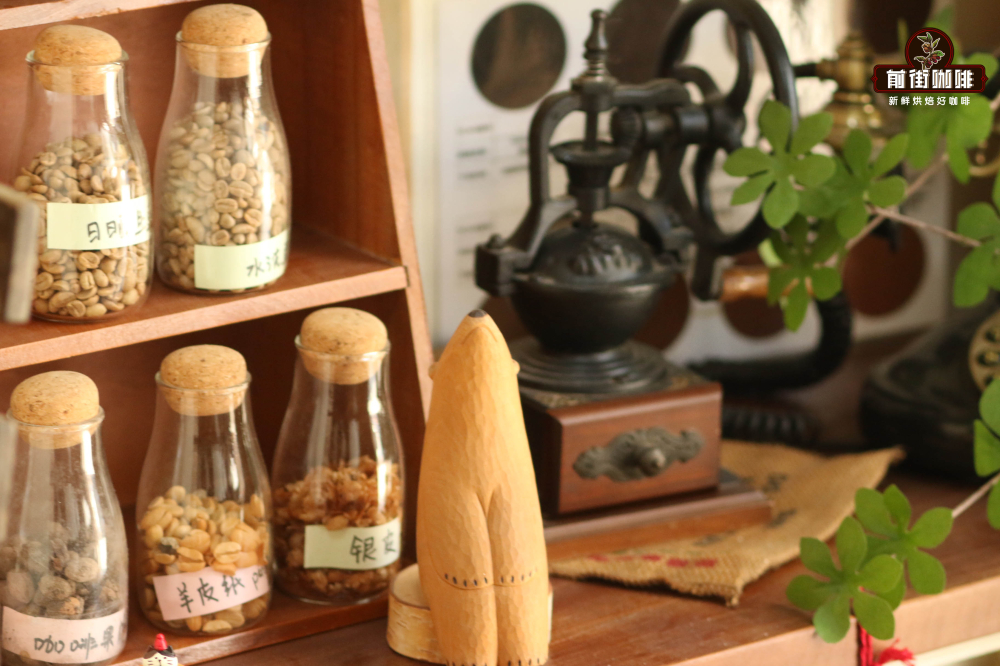
Yunnan's undulating and towering peaks are famous for growing tea. With the rapid growth of China's coffee market, there is also a strong aroma of coffee in the wooded land of Yunnan. More and more coffee lovers go to Qianjie coffee shops to ask about Yunnan small grains of coffee. With the increasing pursuit of coffee flavor refinement, people began to pay attention to Yunnan coffee bean varieties, why it caused this situation, and so on.
As one of the crops, coffee is restricted by the planting environment. It is not difficult to find that many coffee producing areas are mostly concentrated in the coffee gold planting belt that has been discussed in Qianjie, while the coffee producing area in Yunnan Province of China is located near the Tropic of Cancer. For the land of China, tea is a native addiction and coffee is an imported product.
The earliest history of coffee cultivation in China can be traced back to 1877, when the Qing government allowed the indigenous peoples of the Ryukyu Islands to grow a series of economic crops to tame them, including coffee. Then, in the thirtieth year of Guang Xu (1904), a French Catholic missionary was sent by the church to build a church and grow coffee for his own drinking in the village of Zhukula.
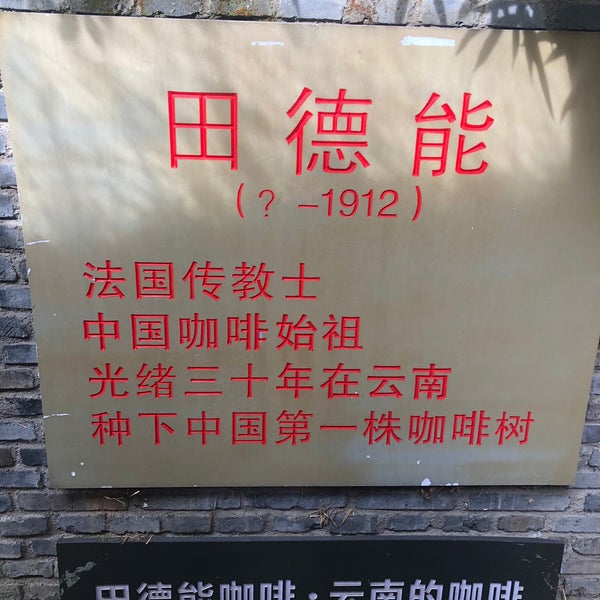
The large-scale production of coffee in China began with the founding of New China, when Yunnan coffee beans were mainly exported to the Soviet Union to offset debts.
In the 1970s, serious coffee leaf rust swept through Yunnan. Due to the elegant flavor but poor disease resistance of Ironpika varieties, batch after batch of Arabica coffee trees fell under the spread of the disease. In order to solve this emergency, local agricultural organizations introduced Katim varieties to popularize planting. Katim defeated other varieties in the "Holocaust" by virtue of its high resistance to coffee leaf rust and became the main force of coffee varieties in Yunnan.
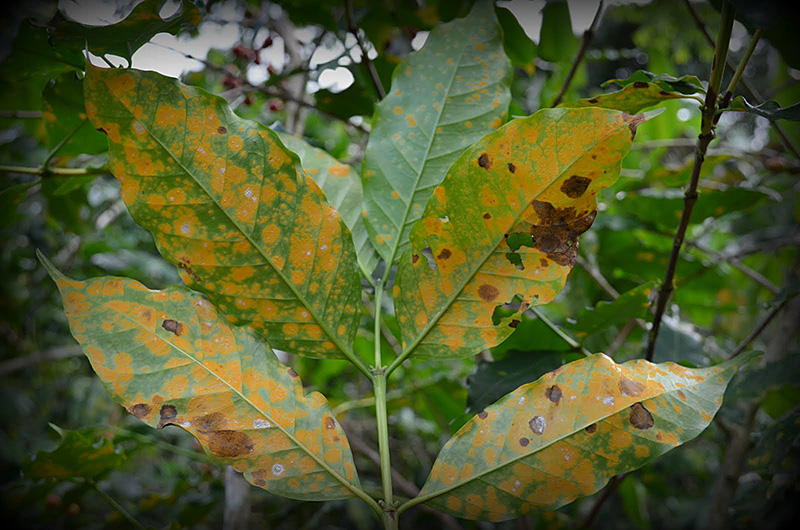
In the late 1980s, the cooperation between the United Nations Development Program and the Yunnan government, the World Bank and Nestl é increased investment in training local farmers to grow and produce coffee, and the coffee industry in Yunnan entered modernization. In the 1990s, the high price of coffee prompted more farmers to start growing Katim coffee beans again, and most of the coffee beans were acquired by large foreign companies such as Nestl é. Subsequently, Katim once occupied 90% of Yunnan's coffee production.
Yunnan small grain coffee gets its name from the iron pickup, and the iron card variety coffee bean is small, so it is named small grain. However, Katim varieties not only have high production capacity and strong disease resistance, but also become popular in front of the benefits.
However, it is necessary to face the fact that Katim is a cross between the Timorese variety and the Kaddura variety. As a result, Katim inherited some of Robusta's genes from Timorese varieties, making him resistant to a series of coffee diseases such as coffee berry disease and coffee leaf rust, but also inherited some of the bad flavor of Robusta.
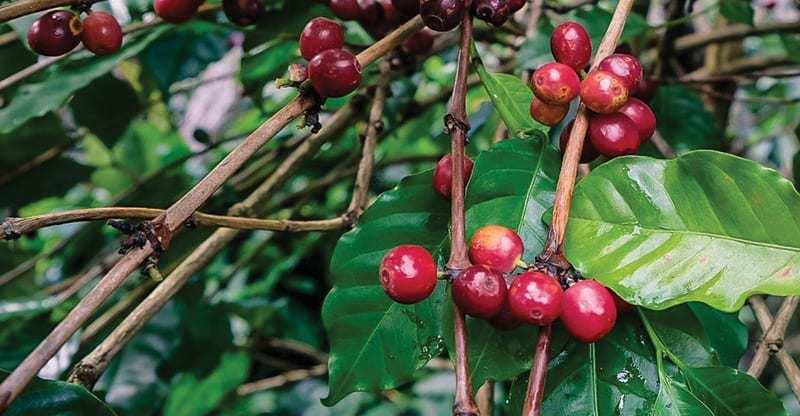
For the Katim breed, due to the blessing of the Robusta gene, there may be a fishy smell like soil. Han Huaizong, a master of boutique coffee from Taiwan, once described it as a "devil-like tail rhyme". At the same time, the coffee master also explained that seven percent of boutique coffee depends on the variety and three percent on the environment.
Qianjie Coffee experienced the whole process from "seed" to "cup" while studying the relevant knowledge of coffee. Yunnan, as an important boutique coffee producing area in China, Qianjie of course has to go in person to pursue the magnificent local flavor of Yunnan.
Yunnan's famous coffee producing areas such as Dehong, Baoshan, Pu'er and Xishuangbanna have their own characteristics. Every enthusiast of Yunnan small-grain coffee has his own ranking of Yunnan coffee producing areas, while Qianjie chose to set up its own coffee farm in Lincang, Yunnan.
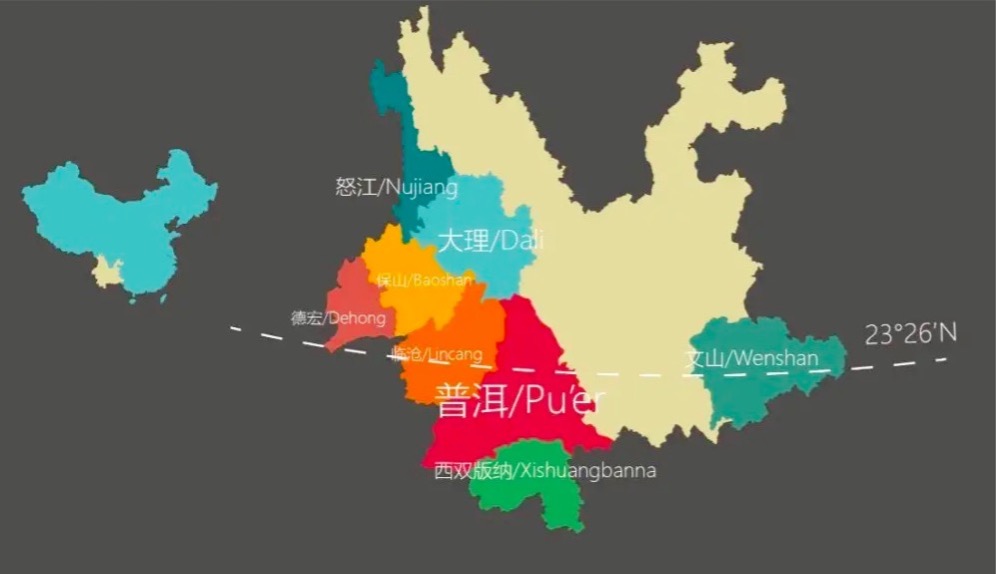
In the front street coffee manor, there are more than 1000 meters above sea level, the annual temperature is between 17 degrees Celsius, dry and wet seasons are distinct, sunshine is sufficient. It provides excellent conditions for Qianjie coffee to grow iron pickup coffee trees in this land. At the same time, in order to compare the differences between different varieties in Yunnan, Qianjie planted other Arabica coffee varieties, such as bourbon, on its own manor.
Since the Qianjie Coffee Farm ushered in a small harvest in 2021, in order to maximize the flavor of the coffee, Qianjie has used all the coffee red cherries harvested in the sun. The glowing red coffee fruits are evenly spread on the elevated bed and turned regularly. While being evenly dried, as much sugar as possible in the coffee fruit slowly seeps into the coffee raw beans, making the sun iron pickup in the front street rich in aroma, solid taste and strong sweetness.

The roaster of Qianjie coffee adopted a moderate baking degree in order to show its strong aroma when setting the baking curve for the tanning iron pickup produced by his own manor.
At the end of each new production season, the baristas of Qianjie Coffee will act as the leader of coffee lovers to drink this "first-taste soup" and test the coffee beans. In the cup test, Qianjie tasted soft berry acid, strong caramel sweetness, with a creamy finish, and finally black tea.

When Qianjie coffee is produced for a type of coffee beans, different roasting degrees correspond to different grinding degrees. Qianjie often receives questions from coffee lovers about what grinding scale the bean grinder should use. Due to the different standards and maintenance status of each machine, the thickness of the same scale is different. Therefore, Qianjie coffee is recommended for grinding degree is mainly standard sieve, Yunnan coffee beans grinding degree, due to the deep roasting degree, Qianjie recommended screening rate of 75%.

Filter cup: Hario V60
Water temperature: 88 degrees Celsius
Amount of powder: 15g
Ratio of powder to water: 1:15
Grinding degree: 75% of the pass rate of Chinese standard No. 20 screen
In the choice of water injection mode, Qianjie coffee is recommended to use three-stage water injection. Qianjie has compared three-stage water injection with one-knife water injection and found that the coffee produced by one-knife water injection has a thin taste, light flavor and single layer. The way of three-stage water injection can evenly extract a variety of sour, sweet and mellow flavor substances with rich flavor levels with the passage of time.
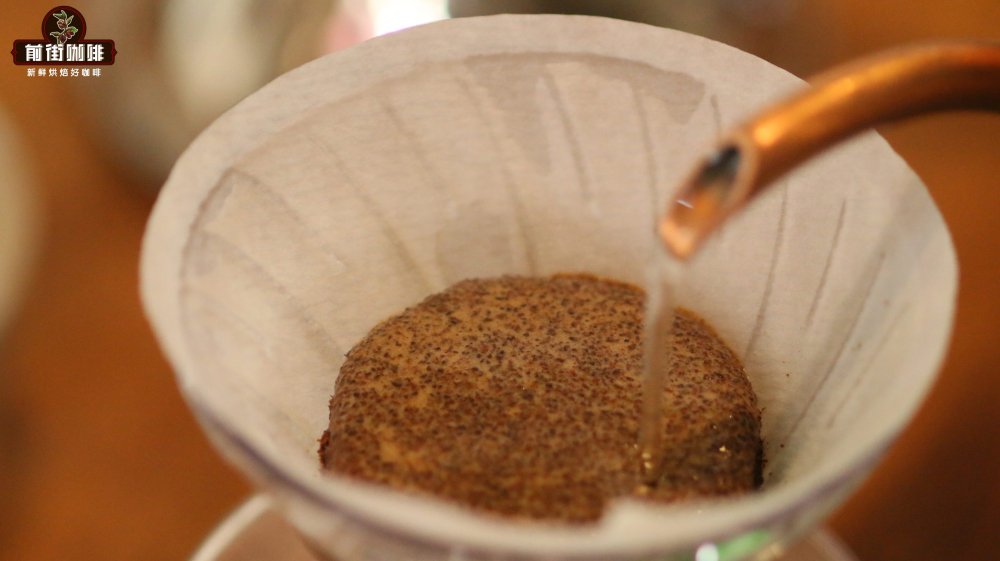
In addition, due to the delivery of Qianjie coffee within 5 days of freshly roasted coffee beans, through logistics transport, after 4 to 7 days of bean cultivation period, worth the best taste period. However, after the coffee beans are roasted, there is enough carbon dioxide gas in the beans, which dissipates with the passage of time, and the coffee flavor becomes round. Too much gas will inhibit the hot water entering the internal structure of the coffee and bring out the flavor substances. Therefore, Qianjie suggests that steaming should be carried out to promote gas discharge.
First inject 30 grams of hot water and steam for 30 seconds, inject fine water from the midline and slowly circle to 125 grams, wait for the water level in the filter cup to drop to 225 grams around the powder bed, and the extraction time is about 2 minutes.
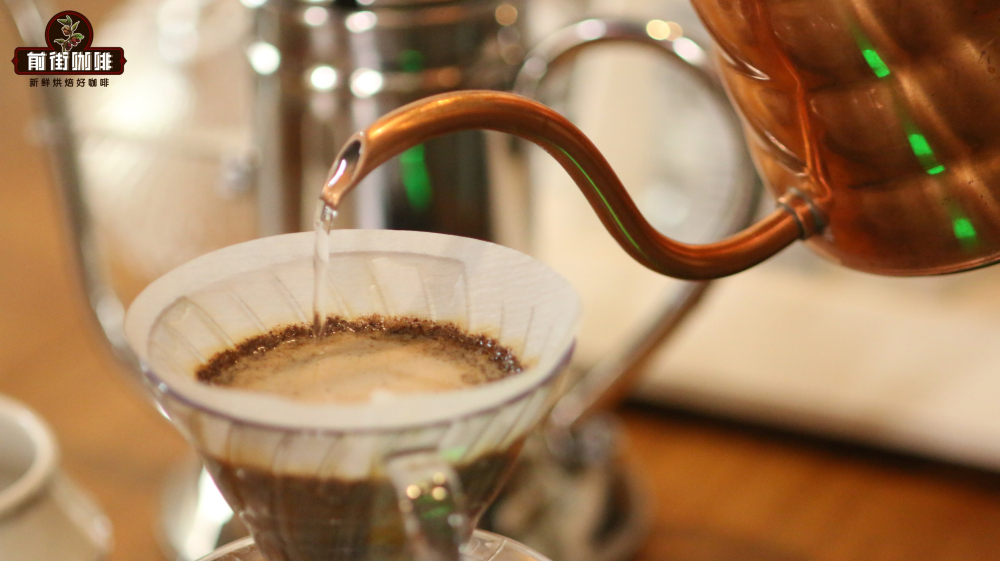
It should be noted that during the third stage of water injection, the water should be injected from the central point and circle gently and slowly, so as to avoid washing away the powdered wall of the cup wall, otherwise the water will flow from a place where it is easier to pass to the sharing pot, resulting in a light flavor and a heavy "water feeling".
Professional coffee knowledge exchange more coffee bean information please follow the coffee workshop (Wechat official account cafe_style)
For more boutique coffee beans, please add private Qianjie coffee on Wechat. WeChat account: qjcoffeex
Important Notice :
前街咖啡 FrontStreet Coffee has moved to new addredd:
FrontStreet Coffee Address: 315,Donghua East Road,GuangZhou
Tel:020 38364473
- Prev
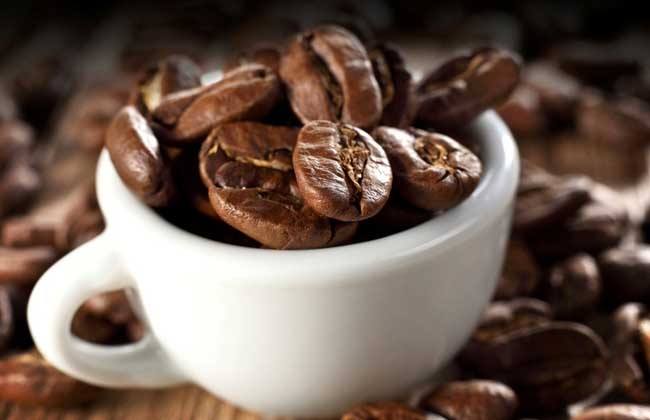
Introduction to the types of coffee in Yunnan and the quality of Yunnan small-grain coffee
Follow the caf é (official Wechat account vdailycom) and found that the beautiful cafe opened a small shop of its own. Yunnan coffee varieties are all Arabica coffee beans grown in Yunnan. The varieties were first introduced in 1892 in Zhukula area, Pingchuan Town, Binchuan County, Dali Prefecture, Yunnan Province. Arabica Bourbon and Arabica Tippica coffee beans were introduced to Kenya in 1991.
- Next
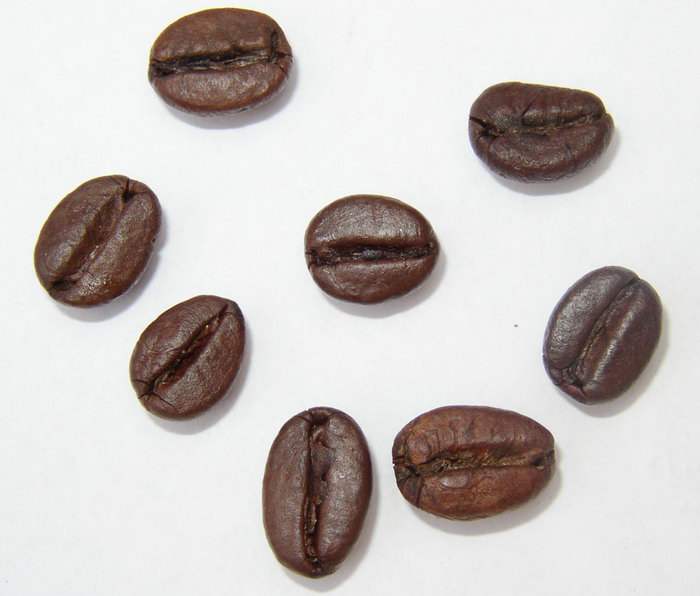
Why Starbucks uses Yunnan coffee beans Fengwu Xiangyun coffee story Yunnan coffee beans quality
Pay attention to the coffee comment (Weixin Official Accounts vdailycom ) and find out how to open a good coffee shop in Yunnan. The quality of coffee beans produced in Yunnan is mainly the iron pica, Baibang and Katim among Arabica. Among them, the good ones are basically exported to Europe. Nestle, Starbucks, Shangdao, Maxwell's coffee beans are all taken from Yunnan, taken from Simao, refused to Baoshan.
Related
- Detailed explanation of Jadeite planting Land in Panamanian Jadeite Manor introduction to the grading system of Jadeite competitive bidding, Red bid, Green bid and Rose Summer
- Story of Coffee planting in Brenka region of Costa Rica Stonehenge Manor anaerobic heavy honey treatment of flavor mouth
- What's on the barrel of Blue Mountain Coffee beans?
- Can American coffee also pull flowers? How to use hot American style to pull out a good-looking pattern?
- Can you make a cold extract with coffee beans? What is the right proportion for cold-extracted coffee formula?
- Indonesian PWN Gold Mandrine Coffee Origin Features Flavor How to Chong? Mandolin coffee is American.
- A brief introduction to the flavor characteristics of Brazilian yellow bourbon coffee beans
- What is the effect of different water quality on the flavor of cold-extracted coffee? What kind of water is best for brewing coffee?
- Why do you think of Rose Summer whenever you mention Panamanian coffee?
- Introduction to the characteristics of authentic blue mountain coffee bean producing areas? What is the CIB Coffee Authority in Jamaica?

